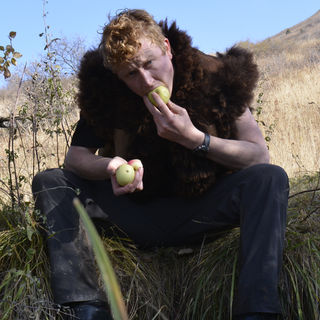For more than eighteen months now, Eat This Podcast has been chugging along nicely, proving to myself that I can keep it fed and, I hope, keep listeners entertained. In that time, I’ve done very little to promote it, and although I’d prefer word of mouth to work its magic, I also recognise that I have to put my own mouth to use, as it were. In addition, all that has ever appeared on this website have been the actual podcasts and the show notes associated with each of them.
That’ll keep things pure, I thought.
Actually, though, it has been a bit of a straitjacket. I want to be able to point to other interesting podcasts about food. And, something that was brought home to me forcefully while I was editing a recording a few weeks ago, I want a way to share snippets that don’t fit in the main show, because they are worth hearing in their own right and also as little trailers for the longer shows.
The site’s design, however, made that a bit difficult. Now, after a bit of code-wrangling on my own account and with a lot of help from my friends, I think I’ve cracked it. There’s a new section, called Extra Matter, which houses trailers and posts, like this one, that don’t have any audio.
If you subscribe via iTunes or a podcatcher app, then the trailers will pop up automagically. No further action required. Subscribers to the email news might not get notice of trailers. I’m weighing the options. Is it worth a short email for a short piece of audio? Probably …
If you’re not already a subscriber, this will take you straight to iTunes and this will take you to the newsletter sign-up.
If you are, how about a little of that word of mouth stuff? Feel free to share with a friend.
Finally, another change that will keep you in touch: a Twitter account. Traffic will be low, so come along and follow me there.
That’ll do for now. As ever, I’d be delighted to receive any feedback you wish to offer. Details at the Get in Touch page.

 Kazakhstan stretches across Central Asia from the Caspian Sea in the east to China in the west. The country is famous for many things – it is the largest landlocked country in the world, says Wikipedia – but among food and plant people it is most important as the home of the apple. The name of the former capital, Almaty, is often translated as Father of Apples, and it was to Almaty that Ben Reade, today’s guest, recently went with a botanist friend in search of good wild apples. He found them, and much else besides.
Kazakhstan stretches across Central Asia from the Caspian Sea in the east to China in the west. The country is famous for many things – it is the largest landlocked country in the world, says Wikipedia – but among food and plant people it is most important as the home of the apple. The name of the former capital, Almaty, is often translated as Father of Apples, and it was to Almaty that Ben Reade, today’s guest, recently went with a botanist friend in search of good wild apples. He found them, and much else besides.